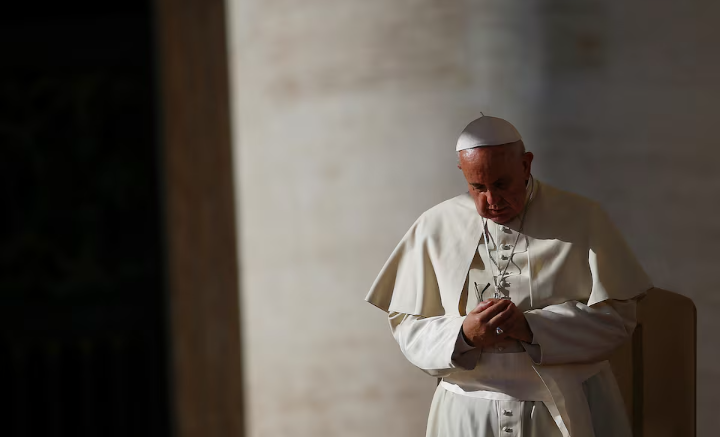The world is in mourning as Pope Francis, the 266th head of the Roman Catholic Church and the first pope from Latin America, has passed away at the age of 88. The Vatican confirmed the news in a solemn video statement on Monday morning, marking the end of a transformative and sometimes controversial papacy that began in 2013.
“Dear brothers and sisters, it is with profound sadness I must announce the death of our Holy Father Francis,” announced Cardinal Kevin Farrell on Vatican television. “At 7:35 this morning, the Bishop of Rome, Francis, returned to the house of the Father.”
Francis, born Jorge Mario Bergoglio in Argentina, had battled health issues in recent months, including a serious case of double pneumonia. Despite his illness, he made a surprise public appearance on Easter Sunday, waving to crowds from the popemobile in St. Peter’s Square and offering a blessing — his first since Christmas.
Tributes have since poured in from across the globe. European Commission President Ursula von der Leyen praised his deep compassion: “He inspired millions, far beyond the Catholic Church, with his humility and love so pure for the less fortunate.” Jose Ramos-Horta, President of East Timor, called him “a symbol of humanity, justice, and brotherhood.”
Elected on March 13, 2013, Pope Francis brought a new sense of humility and accessibility to the papacy. He chose not to live in the opulent Apostolic Palace, instead residing in a modest Vatican guesthouse, stating it was better for his “psychological health” and to remain connected to the people.
Francis’ reign was defined by efforts to modernize and humanize the Catholic Church. He emphasized care for the poor, supported climate action, and consistently advocated for migrants and marginalized groups.

However, his papacy was not without controversy. Traditionalists often clashed with his reforms, accusing him of diluting centuries-old customs, while progressives urged him to go further.
Still, Pope Francis remained focused on unity and compassion, frequently calling for interfaith dialogue and peaceful coexistence. His legacy will also influence the Church’s future: nearly 80% of the cardinals eligible to vote for the next pope were appointed by him, making it likely that his vision for a more inclusive Church may continue.
Remarkably, Francis led during a rare period in Church history when two popes lived within the Vatican walls, following Pope Benedict XVI’s historic resignation in 2013. Benedict passed away in 2022.
As the world reflects on his impactful life, Pope Francis will be remembered as a leader who dared to challenge tradition with love, humility, and an unwavering dedication to justice.



